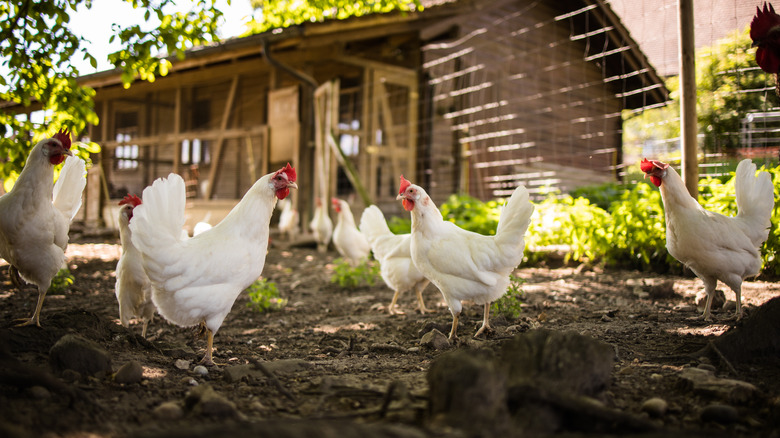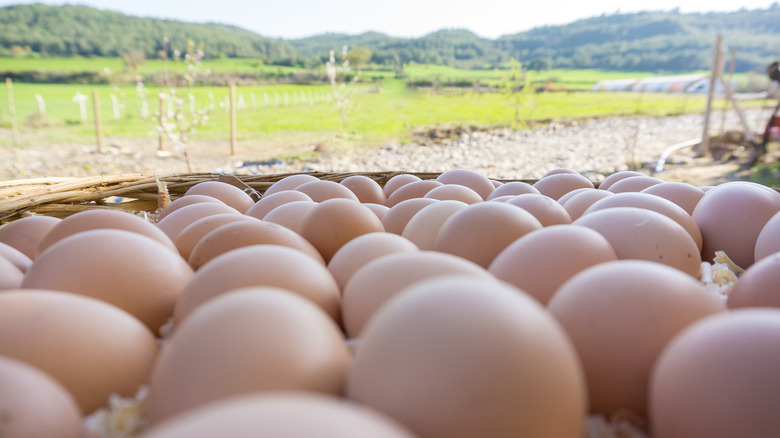Why Free-Range Poultry Is In Lockdown — And What It Means For Eggs
In the past few months, we have heard a lot about inflation and how it affects us in various ways from gas prices to groceries. While food shopping, chances are you've noticed a significant increase in your bill and perhaps have even had to adjust your monthly budget. Even egg prices are on the rise, but there's more to this hike than just inflation.
Perhaps you've seen the news stories covering the bird flu outbreak, and while you may not have thought much of it, it's actually a pretty big deal, putting the poultry industry in danger. Per Reuters, because of the massive outbreak of this flu, farmers are trying to protect their organic and free-range chickens by locking them down. Much like our own recent pandemic lockdown, many chickens are living through their own version. Those once used to roaming free are now being forced to stay indoors for their own safety.
Informing consumers of the change
According to Reuters, government officials state that keeping the chickens indoors is crucial because "a single case of bird flu results in entire flocks being culled." Of course, farmers want to keep their flocks safe, but does this mean that the chickens and their eggs are no longer free-range? Indeed it does.
By being kept indoors, the hens have limited room to roam, along with a decrease of sunshine exposure. Reuters reveals that U.S. Watchdogs are urging retailers to make consumers aware of the bird lockdown, as they may choose to spend their grocery money on other items considering eggs are not technically "free-range" right now. Egg consumer Marc Dossem spoke with a Paris-based grocer stating, "At the end of the day you still pay the price of 'free range' or organic eggs when the fowls have actually never seen the sky."
As of now, the U.S. Department of Agriculture suggests that "as long as the HPAI outbreak is ongoing," the chickens should be kept indoors, although this is not a mandated regulation (per Reuters). This is, reportedly, the second-largest Avian flu outbreak in history, so keeping the chickens safe is important, as is keeping consumers informed.

